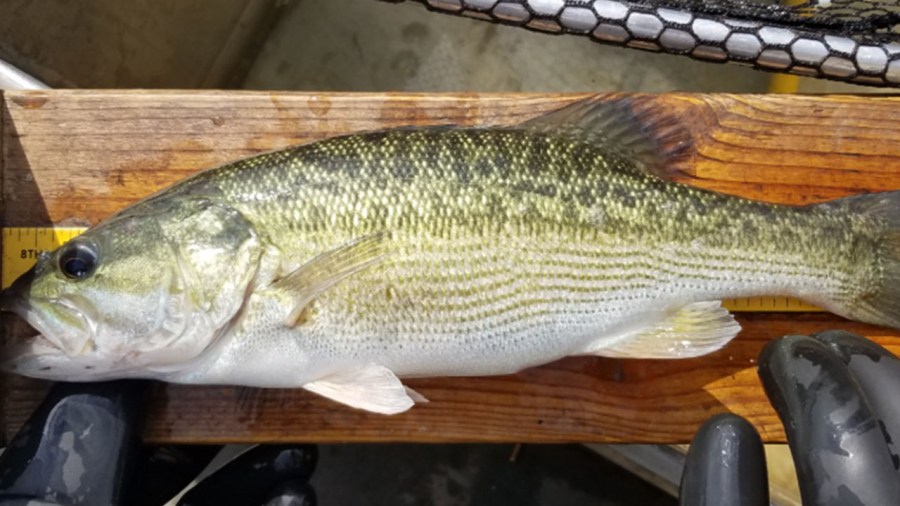RALEIGH, N.C. (WGHP) — A bass species that are invasive to North Carolina is spreading in our lakes and rivers and competing with our native fish, according to the NC Wildlife Resources Commission.
Biologists with the NCWRC are asking the public for help to prevent the spread of Alabama bass to protect the future of native largemouth, smallmouth and spotted bass in NC.
As of April, they have been reported in Belews Lake, the Dan River and Salem Lake.
“They’re being stocked and moved to new locations by anglers who need to understand the impact it’s having to our native black bass family of largemouth, smallmouth and spotted bass,” District Biologist Kin Hodges said. “Populations of largemouth bass are being dramatically reduced, while North Carolina could potentially lose smallmouth and spotted bass.”
Alabama bass have been known to exist in NC waters since the 1980s, but only sparsely. They were first found in far southwestern Lake Chatuge and then Lake Norman.
They are believed to have been stocked by anglers. Routine fisheries surveys conducted by NCWRC biologists have documented the spread of Alabama bass over the last 20 years in NC reservoirs and rivers.
Their distribution has rapidly grown and spread, and they are now being identified in coastal areas, including the Roanoke River and Tar River.
“When we heard Alabama bass were being caught in reservoirs upstream of our coastal rivers in 2020, we anticipated we would start seeing them downstream,” Coastal Region Fisheries Research Coordinator Kevin Dockendorf said. “In October 2024, our fisheries biologists collected Alabama bass in the Roanoke and Tar rivers with boat electrofishing. This expansion of Alabama bass is of concern given the similarities of NC’s coastal rivers to the habitats found in Alabama bass’s natural range.”
While fishing for Alabama bass is popular with some anglers, NCWRC staff say many are unaware of the threats they pose and are continuing to move the species into new waters.
“They are being illegally spread across the state by misguided anglers who think that they will make the fishing better,” Hodges said. “The only tools we have to minimize the damage being caused by Alabama bass are to encourage anglers not to spread them to new waters and to harvest as many as possible in waters where they have already been introduced to minimize their damage.”
It is illegal to move or stock fish into public waters without a stocking permit from the NCWRC. This includes live well releases into waters different from where the fish were caught.
If you know about any Alabama bass stockings, you’re asked to report them by calling 800-662-7137.
Anyone who catches one in a body of water not previously documented is asked to take a picture and report it through the NC Wildlife Aquatic Nuisance Species Reporting Tool or by emailing [email protected].
Copyright 2025 Nexstar Media, Inc. All rights reserved. This material may not be published, broadcast, rewritten, or redistributed.
For the latest news, weather, sports, and streaming video, head to FOX8 WGHP.
The post Invasive bass species spreads from western North Carolina to Piedmont Triad appeared first on Yahoo News.




